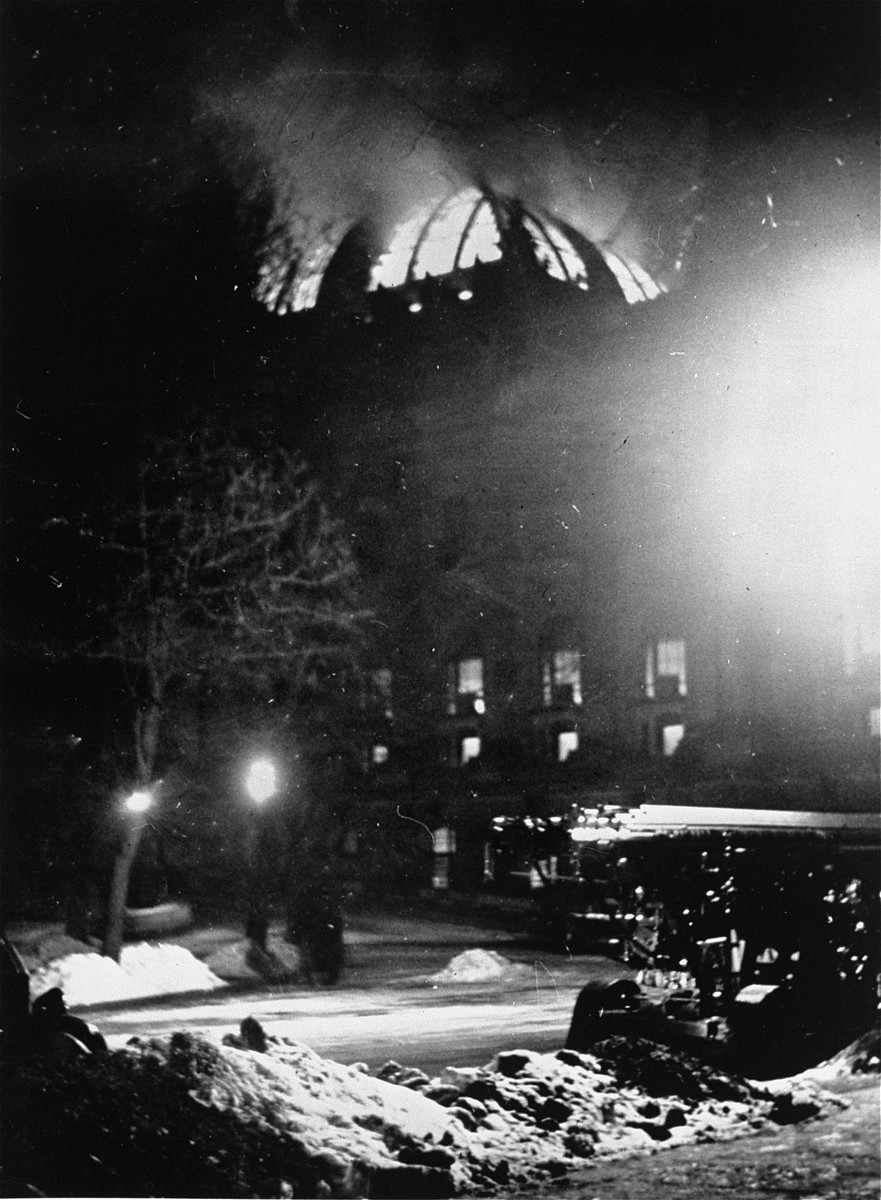
Reichstag Fire Plunges Germany into Virtual Martial Law
On February 27, 1933, the German parliament (Reichstag) building burned down. Nazi leadership and Nationalist coalition partners exploited the fire to pass emergency legislation, paving the way for Nazi dictatorship.
View newspaper articlesOn February 27, 1933, the German parliament (Reichstag) building in Berlin burned down due to arson. Though the origins of the fire are still unclear, the Nazi leadership and its coalition partners used the fire to falsely claim that Communists were planning a violent uprising. They claimed that emergency legislation was needed to prevent this. As early as February 4, 1933, Adolf Hitler’s cabinet had already used emergency powers to issue a Decree for the Protection of the German People that placed constraints on the press and authorized police to ban political meetings and marches. This had effectively hindered electoral campaigning. A temporary measure, it was now followed by a more dramatic and permanent suspension of civil rights and constitutional protections, paving the way for Nazi dictatorship.
Implemented on February 28, 1933, one day after the fire, the Decree of the Reich President for the Protection of the People and the State (popularly known as the Reichstag Fire Decree) suspended the right to assembly, freedom of speech, freedom of the press, and other constitutional protections, including all restraints on police investigations. The decree permitted the regime to arrest and incarcerate political opponents without specific charge, to dissolve political organizations, and to confiscate private property. The decree also gave the regime the authority to overrule state and local laws and overthrow state and local governments. It remained in effect until Nazi Germany was defeated in May 1945.
The Nazi press described the Reichstag fire as the work of the Communists and a signal for their planned uprising. Even the US independent Fox Movie Tones newsreel reflected the German government version. Although the Communists had not, in fact, developed any plans for an uprising, the impact of propaganda and terror on existing fears of a Communist takeover convinced many Germans that Hitler’s decisive action had saved the nation from “Bolshevism.”
Newspaper Articles about this Event
486 articles in 243 newspapers
-
Fire Destroys German Reichstag Building
, Delphos Daily Herald, Delphos, Ohio -
Hitler To Demand Dictator's Powers
, The Wichita Eagle, Wichita, Kansas -
Hitler Opens War Against Communists
, The Bakersfield Californian, Bakersfield, California
Learn More about this Historical Event
- The Reichstag Fire (Holocaust Encyclopedia)
- Reichstag Fire Decree (Holocaust Encyclopedia)
- Arrests Without Warrant or Judicial Review (Holocaust Encyclopedia)
- The Enabling Act (Holocaust Encyclopedia)
- Law for the Imposition and Implementation of the Death Penalty (Holocaust Encyclopedia)
- Law Against the Founding of New Political Parties (Holocaust Encyclopedia)
Search tips
These dates and keywords are associated with this historical event.